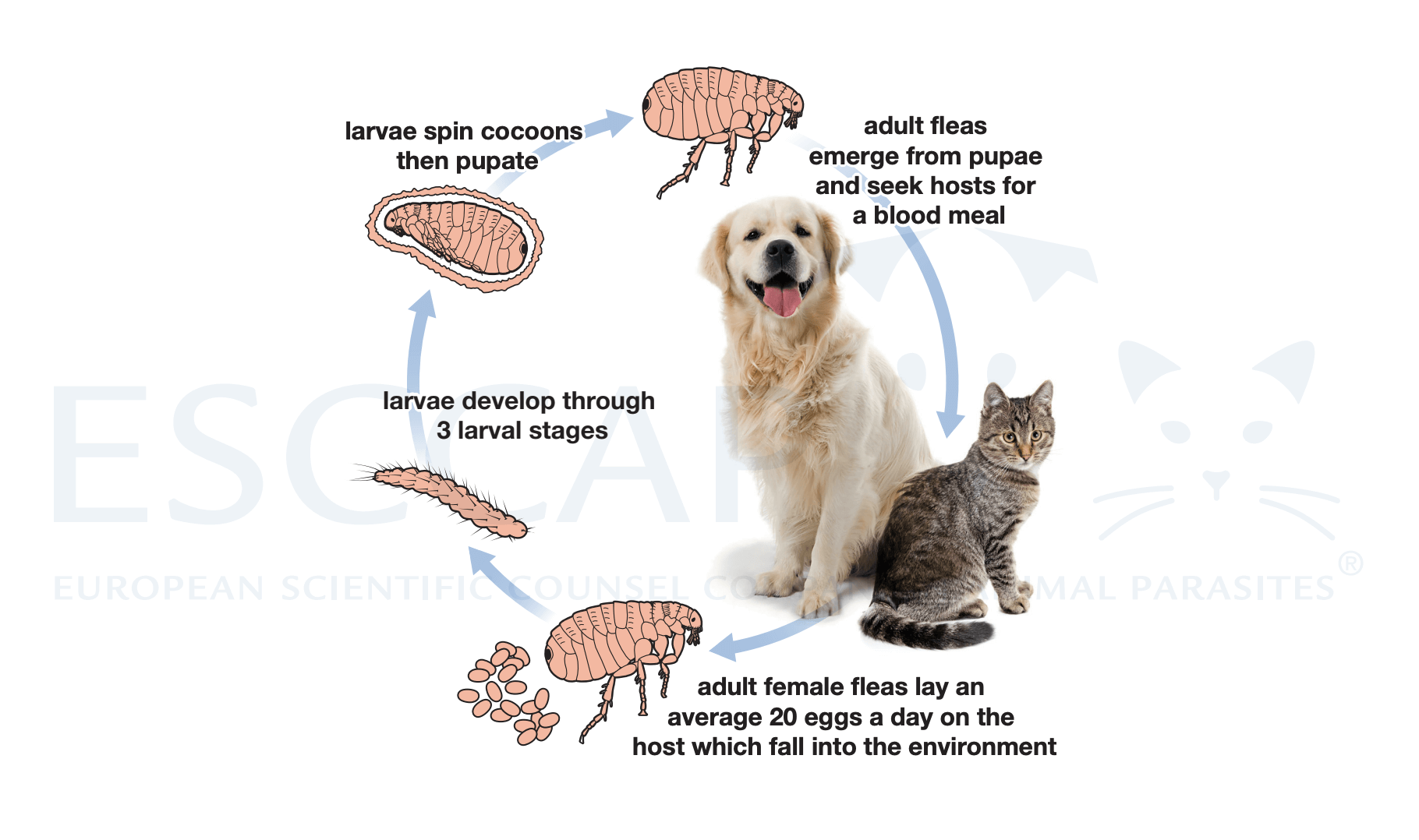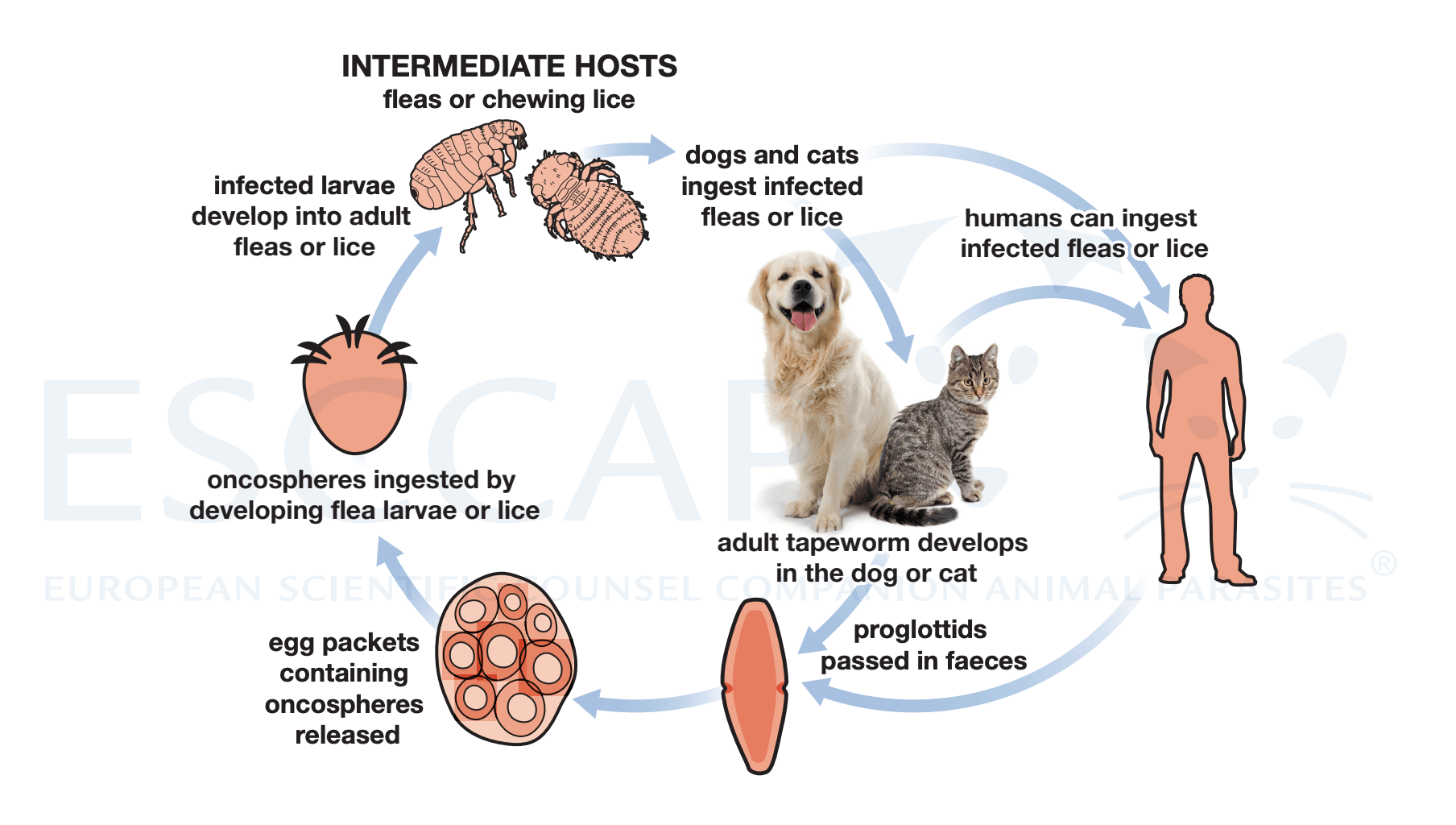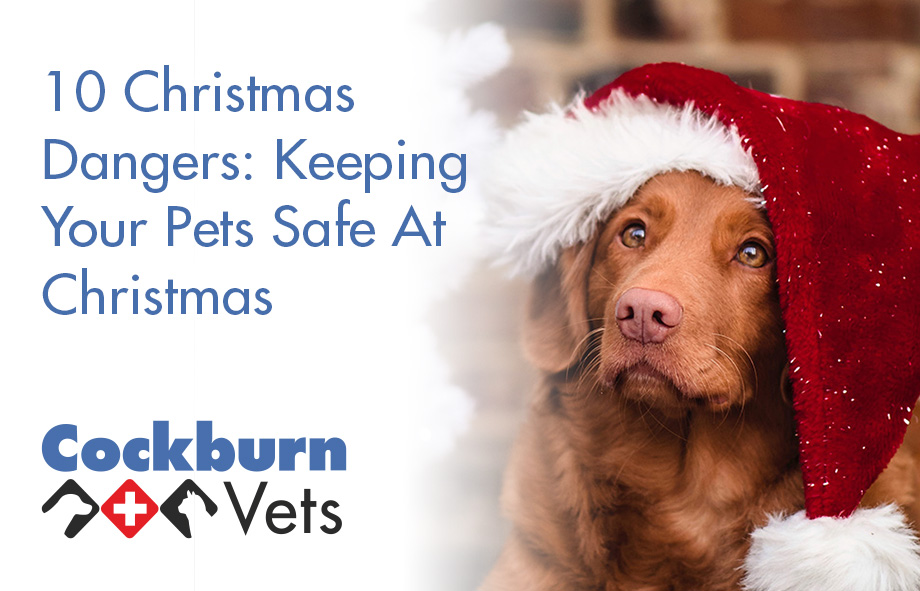As we snuggle up on the cold, winter nights and turn up our central heating, we may be surprised to find a problem with fleas. This is because low levels of fleas on our pets can remain undetected and infest our homes. Each adult female flea can lay up to 20 eggs per day on your pet’s coat – that’s up to a whopping 500 eggs in her lifetime and these eggs fall off wherever your pet lies. These flea eggs can then lie dormant in the environment for some time, hatching out when the conditions become right!
What makes pet fleas hatch out?
- Fleas need a warm environment to hatch out. Their ideal temperature is around 21⁰C – which is why we see then hatch out when we switch on our central heating, or when temperatures rise in the summertime.
- They love a humid environment too
- And they are also sensitive to vibrations. This is why we find fleas hatch out when we move home to a house which has been empty for a little while
What signs will I see if my pet has fleas?
Fleas can cause our pets to scratch and itch. In some animals this itching can become intense leading to skin infections, hair loss and broken hair, scabs and sores. In young or old animals heavy flea burdens can even cause anaemia.
If your pet is itching or scratching or you see dark coloured dirt on your pet’s coat you should check for fleas. You can do this by combing the coat with a flea comb. This is a comb with narrow teeth so that it catches small items in the coat. You can also put some of the dirt onto a piece of white paper, and add some water. If when you smear the paper you see a red streak, this may suggest that the material is ‘flea dirt’.
Sometimes, particularly in cats, we can see signs of hair loss particularly over the back near the tail but not find any fleas. This is because cats can be very allergic to flea saliva, but because they are so keen on grooming they clean away the evidence of fleas. As well as excellent flea control these cats need treatment to stop them itching in order to solve the problem.
Although fleas generally live on our pets, and bite them to get a blood meal, they’re not too fussy so will bite us as well.
Fleas can also spread a tapeworm called Dipylidium caninum so if your pet has fleas you should worm them regularly for tapeworms too.
What should I do if I have a flea problem?
Prevention is always better than cure, so ensuring that you keep your pet’s flea treatment up to date all year round is the best way to stop a problem happening. If you do discover you have a flea problem it is important both to treat your pet and the surrounding environment. This can be undertaken using tablets, spot-on preparations, shampoos, flea collars, flea powders or flea combs. However not all flea removing products or methods are equally effective e recommend using products which kill adult fleas before they can breed and which give sustained protection. In practical terms this means we normally recommend a tablet or a spot-on preparation depending on your pet’s lifestyle – for instance whether they swim or not and what you want to protect against.
You may also need to use a spray to treat the environment depending on how big the problem. While some of the products available to treat fleas on our pets can also treat the environment, is you may need to use a spray specifically designed for this purpose. If you need to use a household spray please make sure you follow the instructions carefully. Flea eggs can be hard to kill so increasing temperatures in the rooms you treat and boiling kettles to increase humidity can encourage flea eggs to hatch out allowing them to be killed more effectively.
Which products should I use to keep my pet safe from fleas?
We believe that your pet deserves the best in flea and worm prevention, which is why our Healthy Paws Club combines the most up-to-date parasite protection to ensure they are kept safe.
If you would like one of our vets to write a personalised programme for your pet, please just visit us and we’ll be happy to advise based on their lifestyle.




